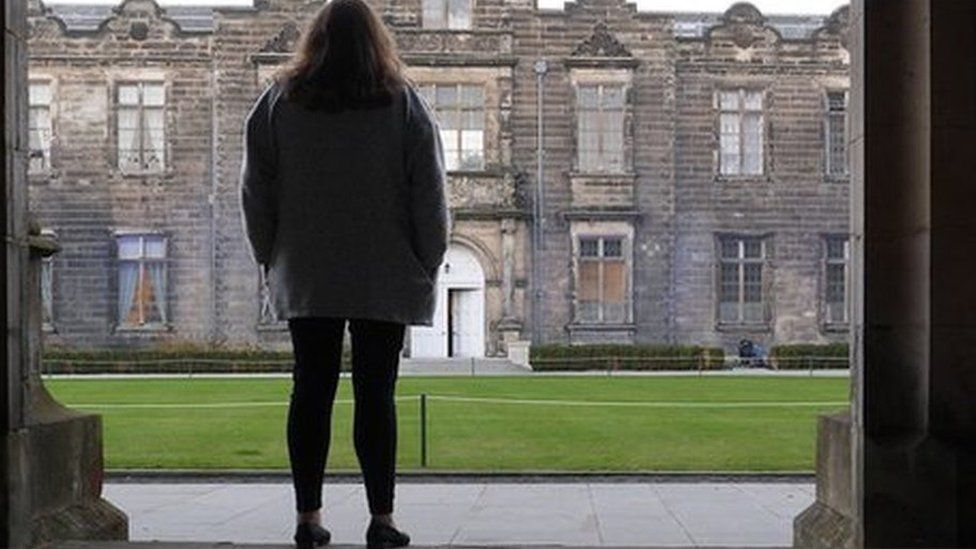Rape victim raises 'not proven' verdict with Nicola Sturgeon
- Published

The first minister has been asked to back calls for an end to Scotland's not proven verdict.
Nicola Sturgeon met a rape victim - known as Miss M - who has campaigned on the issue since the case against the man accused of attacking her was found not proven.
She later won a civil case against the man, Stephen Coxen.
Justice Secretary Humza Yousaf has previously said he is open-minded about calls to change the verdict system.
Campaigners have suggested juries in Scotland should be required to find an accused person either guilty or not guilty.
However, the law currently allows a third option - not proven.
Victims' trauma
Ms Sturgeon said the justice system had to learn from rape survivors about how they felt they were treated.
"It's important that we listen to those experiences to understand how the criminal justice system in particular deals with victims and the improvements that can be made to, as far as possible, lessen the trauma that victims experience," the first minister said.
"But also that we listen to the real life experiences of victims as we consider longer-term reforms to the justice system."
Miss M said a change in the law would be particularly relevant to cases involving sexual assaults, and would help "every rape survivor in Scotland".
She took the unusual step of pursuing a civil case against her attacker after a jury originally found the case against him not proven.
The civil case, in which the burden of proof was lower, resulted in a sheriff ruling that Stephen Coxen had raped her.
He was ordered to pay her £80,000.
Mr Coxen denied rape and said they had consensual sex.
What is the not proven verdict?
- Scotland, unlike most of the world's legal systems, has three possible verdicts in criminal cases - guilty, not guilty and not proven
- The legal implications of a not proven verdict are the same as with a not guilty verdict: the accused is acquitted and is innocent in the eyes of the law
- Not proven is seen by some as offering additional protection to the accused
- But critics argue that it is confusing for juries and the public, can stigmatise an accused person and fail to provide closure for victims
Speaking on BBC Radio Scotland's Good Morning Scotland programme, former St Andrews University student Miss M said that, after five years of court proceedings, she wanted "to invest my time in something that would help other rape survivors and every rape survivor in Scotland".
"A not proven verdict doesn't feel like an end - you've been though this process for maybe two years, three years, and at the end of this process you expect it to be the end," she said.
"But really it isn't over for us. Some people say it is never going to be an ending with a not proven verdict."
'Borrowed time'
Miss M said there were flaws in the way the original criminal trial had been handled but her focus was now on helping other victims obtain justice.
She added: "Now it is about what can I do for other women in Scotland, what can I do with my energy and the fact that I am able to speak up and a lot of other people haven't found their voice yet?
"What I am doing is investing my time and trying to do something, highlighting that actually we are having jury members sit on trials where they do not know what a not proven verdict is."
Concerns have been raised about whether juries fully understand the not proven verdict.
A recent study suggested a guilty verdict would be more likely if the third option was not available in criminal trials.
The Scottish parliament's justice committee has previously concluded that Scotland's not proven verdict is on "borrowed time" and may not serve any useful purpose.
Miss M said: "Frankly, there is no definition of not proven set in stone."
- Published13 November 2018
- Published15 October 2018
- Published5 October 2018
- Published24 September 2017
- Published29 July 2017
- Published13 September 2016
- Published9 February 2016